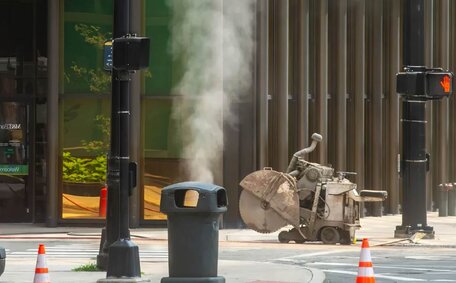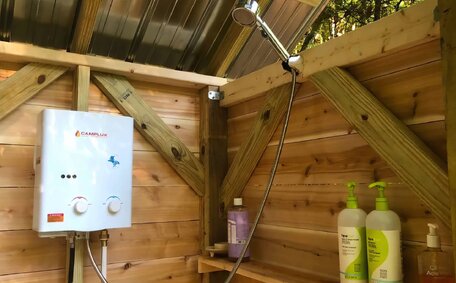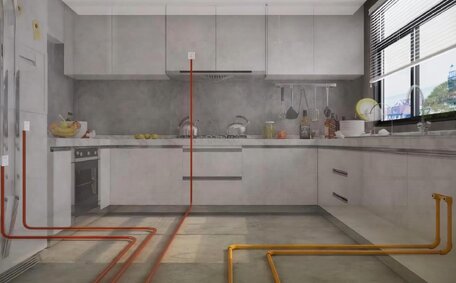
How To Move A Gas Meter
Need your gas meter relocated? You can’t move it yourself - contact your supplier to arrange for a gas engineer to reposition it safely. Charges may apply depending on circumstances.
Read MorePipe relining, a trenchless repair method, revives damaged pipes without the need for extensive excavation, saving significant resources. At Menai Plumbing, we use state-of-the-art pipe relining technology for effective pipe repairs in the Menai region of Sydney, addressing issues like cracks, holes, or root intrusion.
Pipe relining, perfect for various drains including sewer and stormwater, involves installing a resin-coated liner into existing pipes without excavation, making it the preferred option for a broad range of pipe types.
Upon completion of the relining process, a new 'pipe within a pipe’ is created, bolstering the sewer system for future demands. This technique can all be seamlessly conducted to fashion a new pipe inside the old infrastructure, ranging from as compact as 3 metres to 100 metres or greater in a singular installation.
In this article, we’ll explain the pipe relining process and how it can renew old, damaged pipes with holes quickly and effectively, with minimal disruption to your home business.
The pipe relining process involves inserting a resin-impregnated fabric tube into the damaged pipe. This epoxy resin liner can be used to effectively create a 'pipe within a pipe’ once it cures and hardens.
During the inspection, our technicians use a CCTV drain camera to meticulously identify holes, cracks, or root ingress in your drains. This allows us to measure the length pipe and its diameter of the damaged section that requires relining.
The liner, impregnated with a two-part epoxy resin essential for successful pipe repair, is introduced into the pipe via an access point. Once in place, compressed air expands the liner against the pipe’s internal walls for an exact fit.
As the epoxy cures, it forms a smooth, jointless and corrosion-resistant inner pipe surface able to withstand pressure and abrasion. The epoxy liner bonds tightly to the old pipe, restoring structural integrity and sealing holes to enhance stability, giving homeowners peace of mind.
The relining yields a pipe with a smooth interior that improves water flow, and the robustness of the newly lined sewer deters future root intrusion, making it a highly recommendable option.
Pipe relining enables on-site restoration of compromised pipes, including hot water pipes, with minimal excavation, saving both time and money, and with many jobs completed proficiently in a single day.
Below are the key steps in our pipe relining process:
The curing process typically takes 2-3 hours, after which the epoxy liner is structurally solid, forming a seamless 'pipe within a pipe’ that seals holes and efficiently restores flow capacity.
The pipeline’s service remains uninterrupted during the relining operation. While plumbing may be temporarily shut off, there’s no need to evacuate the building during a meticulous pipe relining job. Our diligent efforts ensure your garden isn’t disrupted, relining your pipes without the need to dig up, thus maintaining minimal disruption.
With over 50 years of experience, our team proficiently ensures your drains and sewer pipes are relined without digging, providing skilled service with minimal impact on your environment.
Recognising the efficiency of sewer pipe relining in repairing faults often leads many to prefer this method and contact us for various situations:
If your Sydney property requires pipe relining, and you’re seeking a skilled plumber’s opinion on its suitability, call Menai Plumbing at 1300 349 338 for a cost discussion. Without the need to dig and with minimal disruption, we can assist in relining your damaged pipes from the inside out.
capable of repairing and rehabilitating various types, including:
Regardless of the material, your current pipes can be internally relined to regain their structural soundness and proper flow without necessitating replacement.
Our skilled crew at Menai Plumbing excels in advising on pipe suitability for trenchless relining, upholding the highest Sydney standards. With minimal earth disturbance, we supply the necessary information you need to know about pipe relining to swiftly and masterfully renew your old conduits.
Several indicators that your pipes may be fit for relining include minor leaks, seeping joints, lower water pressure, and backups. Damp yard patches along the pipe line could mean holes or cracks are present. If these signs are evident, the pipe’s overall structure likely remains intact. Menai Plumbing will perform a detailed camera inspection to ascertain efficient relining compatibility, endorsing trenchless methods for suitable cases.
Blocked drains, evidenced by slow drainage or gurgling noises, and tree roots intruding into the system necessitate immediate drain repair, making such pipes ideal for the pipe relining technique.
In summary, pipe relining is a non-intrusive, efficient method to repair and revitalise old, damaged pipes, provided their basic structure is sound, a procedure often favoured by homeowners and businesses alike.
The team at Menai Plumbing have 50+ years of pipe relining experience. If you need honest expert advice on whether relining is the most suitable option for your situation, contact us today on 1300 349 338.
Several factors influence the overall project cost, such as pipe length, diameter, material, and location, with precise quotes given post a thorough site inspection.
As a trusted local plumber serving Menai, Sydney for over 10 years, Menai Plumbing offers comprehensive pipe relining solutions as experts. We offer free on-site quotes so you understand how much does pipe relining costs for your situation for your specific situation.
Pipe relining is often a more economical solution for pipe remediation. Contact our team today on 1300 349 338 if you need honest advice on whether relining or replacement is the more cost-effective option for restoring your damaged pipes.
Several primary reasons lead to the development of holes and cracks in pipes:
Holes allow water to leak out and air and roots to infiltrate your pipes. This leads to reduced water pressure, clogs, sewer gas odours and potential backups or overflows.
If you suspect your pipes have issues like holes, a professional inspection by Menai Plumbing can verify it. We can then recommend the best repair method, including trenchless pipe relining that seals small holes internally.
Contact our plumbing team today on 1300 349 338 if you require an assessment of damage like holes in your pipes in the Menai area.
One of the biggest benefits of pipe relining is the long lifespan you can expect from the repair. High quality epoxy resins create a robust, jointless liner able to withstand decades of pressure, abrasion and corrosion.
Most reputable companies provide a warranty of at least 50 years on pipe relining projects. However, relined pipes often last even longer with a lifespan of 50-100 years.
This longevity provides great value to homeowners. Renewing your pipes cost-effectively through relining means fewer worries about repairs, leaks, or damage for years to come.
This sets your plumbing system up for optimal performance into the future, offering you peace of mind.
At Menai Plumbing, we utilise top-quality polyester and vinyl ester resins, which assures the longest-lasting results—a detail we always share with our clients. We stand behind our workmanship with confidence to deliver peace of mind.
Investing in preventative pipe relining can offer extensive benefits, postponing the necessity for new pipes. Reach out to our team at 1300 349 338 to explore long-term renewal options for your pipes.
This longevity provides great value to hom
Need your gas meter relocated? You can’t move it yourself - contact your supplier to arrange for a gas engineer to reposition it safely. Charges may apply depending on circumstances.
Read MoreInvesting in a solar hot water system can save up to 75% on water heating costs. With great returns and added home value, solar hot water can be a smart choice over electric or gas heaters. Contact us to see if it’s the right investment for your home.
Read MoreWhile natural gas and propane can both power appliances in your home, they have notable differences when it comes to BTU output, infrastructure, safety, cost and more. Understanding these key contrasts will help you determine which is better for your specific needs.
Read MoreMenai, 2234 NSW
We will call back as soon as possible.




